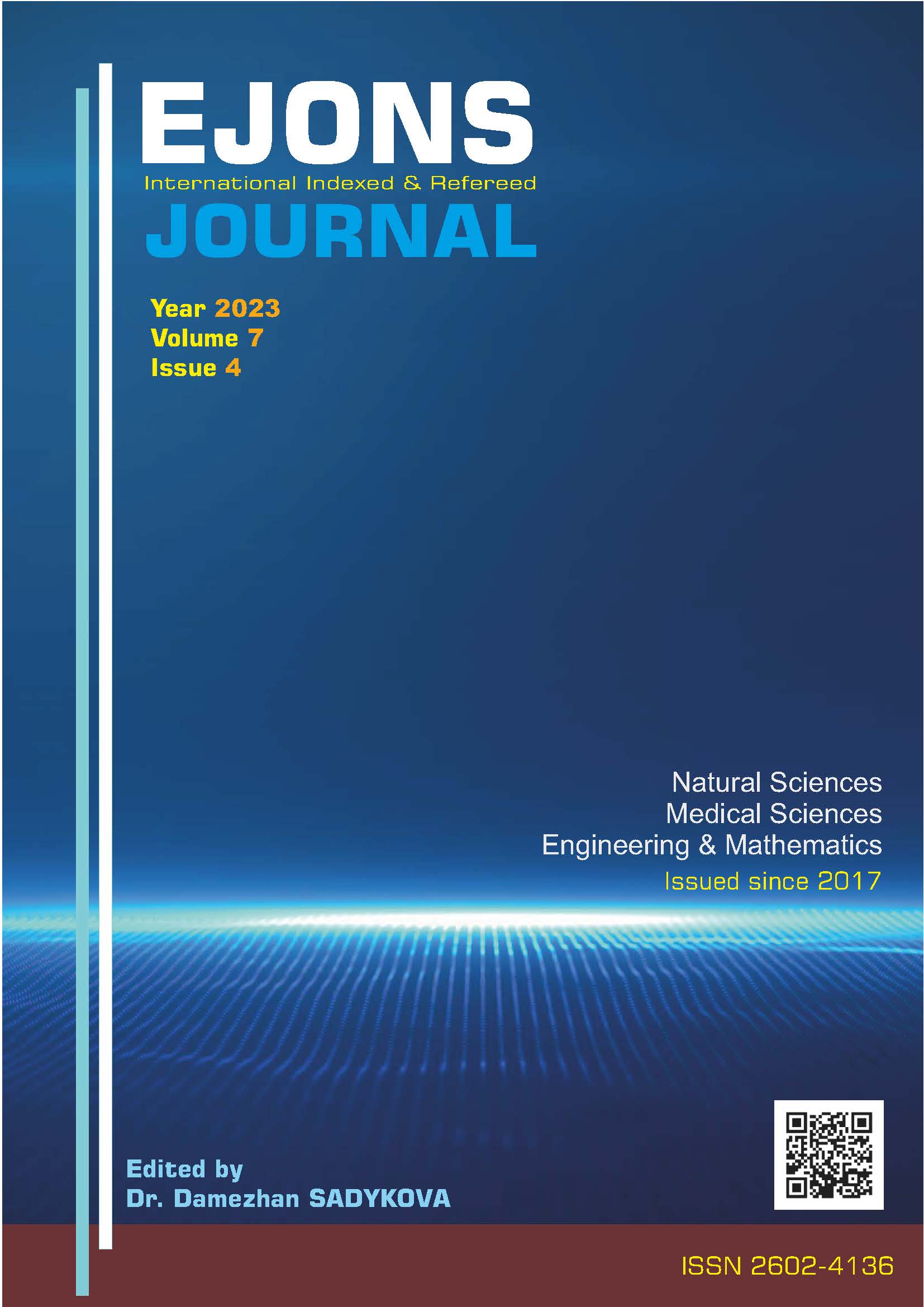Aysin AYSU IMPACTS OF EXISTING SETTLEMENTS ON COMMUNITY AND INDIVIDUAL HEALTH
DOI:
https://doi.org/10.5281/zenodo.10488133Abstract
Cities have undergone transformations throughout history, and are the focus of various fields from sociology to architecture. The Industrial Revolution introduced a new dimension to the urban landscape, fundamentally altering the social structure of cities. The growth of cities has been driven by increased transportation facilities and urbanisation policies, leading to a significant migration from rural to urban areas. Consequently, new neighbourhoods have emerged on the outskirts, and the number of suburbs has increased. These global developments have resulted in notable impacts on the economic, sociological, and physical structures of practically all cities. The study aims to highlight the impact of the growing demands of cities and urban populations on the health of both individuals and society in established settlements where current challenges cannot be resolved. The research methodology centres around analysing data derived from previous studies. The growth of city populations has prompted urban centres to undergo demolition and construction in order to satisfy the demand for housing. Unfortunately, this has resulted in the loss of historical and cultural structures, a surge in development, a reduction of green spaces and poor infrastructure services. Such transformations have contributed to a prevalent sense of melancholy in cities worldwide. A primary gauge of urban well-being lies in the city's inhabitants. The social and physical environment, along with individuals' lifestyles, serve as the chief influencers of health. In 1948, the World Health Organisation established health as "the state of complete physical, mental and social well-being". Health is regarded as a resource that enables individuals to lead lives that are productive in terms of their physical, social, and economic well-being. From this viewpoint, cities possess a unique potential to enhance and secure health standards.
References
Akın, G. (2018). Sağlıklı ve Kaliteli Yaşamda Sürdürülebilir Dünya Görüşü, Hitit Üniversitesi Sosyal Bilimler Enstitüsü Dergisi, ANARSAN Sempozyumu, 11(2): 877-891. https://doi.org/10.17218/hititsosbil.460068
Aslan, F., Aslan, E., & Atik, A. (2015). İç Mekanda Algı. İnönü Üniversitesi Sanat ve Tasarım Dergisi, 5(11): 139-151. https://doi.org/10.16950/std.60957
Atakan, G. (2018). 2000’ler Türkiye’sinde “Mekân - Mesken” Kavramlarının ‘Değer’ Kavramı Üzerinden Sorgulanması: Kuramsal Bir İnceleme. GRİD Dergisi, 1(1).
Başaran İ. (2007). Sağlıklı Kentler Kavramının Gelişiminde Sağlıklı Kentler Projesi, Dokuz Eylül Üniversitesi Sosyal Bilimler Enstitüsü Dergisi, 9(3).
Başaran, İ. (2008). Sağlıklı Kent Planlaması Açısından Isparta. Doktora Tezi. Dokuz Eylül Üniversitesi Sosyal Bilimler Enstitüsü.
Belli, A. (2019). Türkiye’de Sağlıklı Kentler ve Büyükşehir Belediyeleri Üzerine Karşılaştırmalı Bir Analiz, Uluslararası Toplum Araştırmaları Dergisi, 10(17). https://doi.org/10.26466/opus.512721
Dede, O.M. & Şekeroğlu, A. (2019). Sağlıklı Kent Kavramı İçin Nüfus Kriterinin Önemi. Kent Akademisi, 12 (40): 703-713.
Demirci, G. & Arabacıoğlu, B.C. (2022). Mekân tasarımı üzerine sistematik bir süreç araştırması. Gümüşhane Üniversitesi Sosyal Bilimler Dergisi, 13(1): 272-281.
Demirtaş, Ş., Güngör, C. & Demirtaş, R. N. (2017). Sağlıklı Yaşlanma ve Fiziksel Aktivite: Bireysel, Psikososyal ve Çevresel Özeliklerin Buna Katkısı, Osmangazi Tıp Dergisi, 39: 100-108. https://doi.org/10.20515/otd. 292504
Erkılıç, H. N. (2019). Tanımsız Kentsel Açık Alanların Okunması ve Değerlendirilmesi Üzerine Bir Yaklaşım Önerisi. Yıldız Teknik Üniversitesi, Doktora Tezi.
Ghulyan, H. (2017). Çağdaş Yerel Yönetimler Dergisi, 26(3): 1-2.
Kurtar, S. (2013). Bir Şehir Filozofu Olarak Henri Lefebvre ve Gündelik Yaşam Sanatı. İdeal Kent Dergisi, 10: 200-219.
Özen, Y. (2011). Kişisel, Sosyal, Ulusal ve Küresel Sorumluluk Bağlamında Toplumun Yeniden İnşası: Mekan. Pamukkale Üniversitesi Sosyal Bilimler Enstitüsü Dergisi, 8: 137-148.
Özer, A. (2022). Kamusal Mekanların Dizimsel, Biçimsel ve Algılanabilirlik Düzeyinin Değerlendirilmesine Yönelik Bir Yöntem Önerisi: Sultanahmet ve Galata Meydanları. Doktora Tezi. Fatih Sultan Mehmet Vakıf Üniversitesi.
Seçilmiş, Z. N. (2019). Mekansal Değişimin güncelik Yaşama ETkisinin Değerlendirilmesi: Ankara Hamamarkdası Evleri Örneği. Yüksek Lisans Tezi. Atılım Üniversitesi.
Solak, G. S. (2017). Mekan-Kimlik Etkileşimi: Kavramsal ve Kuramsal Bir Bakış. MANAS Sosyal Araştırmalar Dergisi, 6(1).
Susmaz, H.& Ekinci, C. E. (2009). Sağlıklı Kentleşme Süreci Esasları. E-journal of New World Sciences Academy, 4(1).
Tayanç, M. (2022). “Mekân ve Pandemi: Değişen Roller ve Dönüşen Evin Halleri”, HABITUS Toplumbilim Dergisi, 3: 71-95.
Uslu, Ö. N. (2018). Kentsel Kullanımda Kamusal Mekan Pratikleri Karşıyaka’da (İzmir) Toplum Merkezleri. Doktora Tezi. Dokuz Eylül Üniversitesi.
Uzun, O., Can, E. (2021). Mahalli İdare Birlikleri Bağlamında Sağlıklı Kentler Birliği Yerel Yönetimler İlişkileri: Bursa Örneği. Düzce Üniversitesi Bilim ve Teknoloji Dergisi, 9: 60-78. https://doi.org/10.29130/dubited.786055
Zencirci, F.Ç. (2021). Sağlıklı Kentler Projesi Üzerine Bir Çalışma: Batı Akdeniz Bölgesi Swot-AHP Analizi. Yüksek Lisans Tezi. Süleyman Demirel Üniversitesi Sosyal Bilimler Enstitüsü.
Downloads
Published
How to Cite
Issue
Section
License
Copyright (c) 2023 EJONS INTERNATIONAL JOURNAL

This work is licensed under a Creative Commons Attribution-NonCommercial 4.0 International License.


